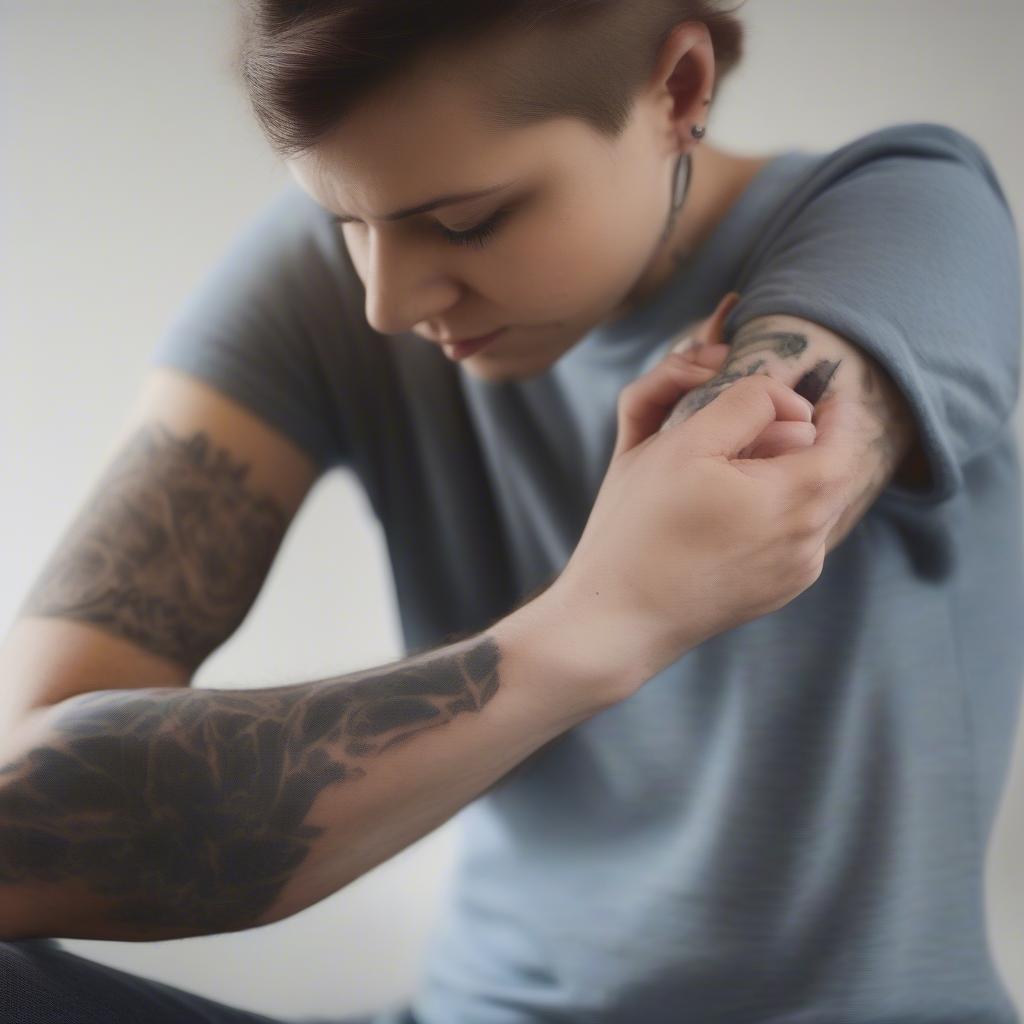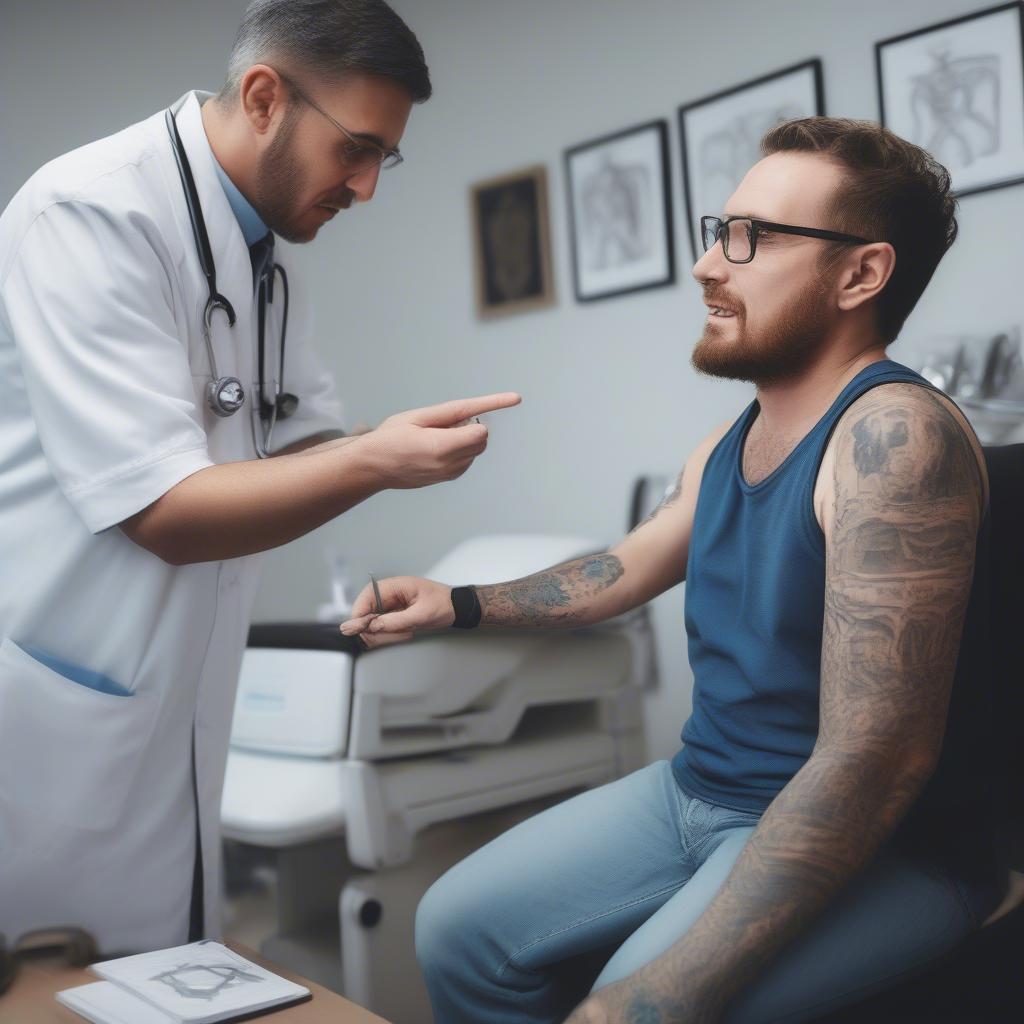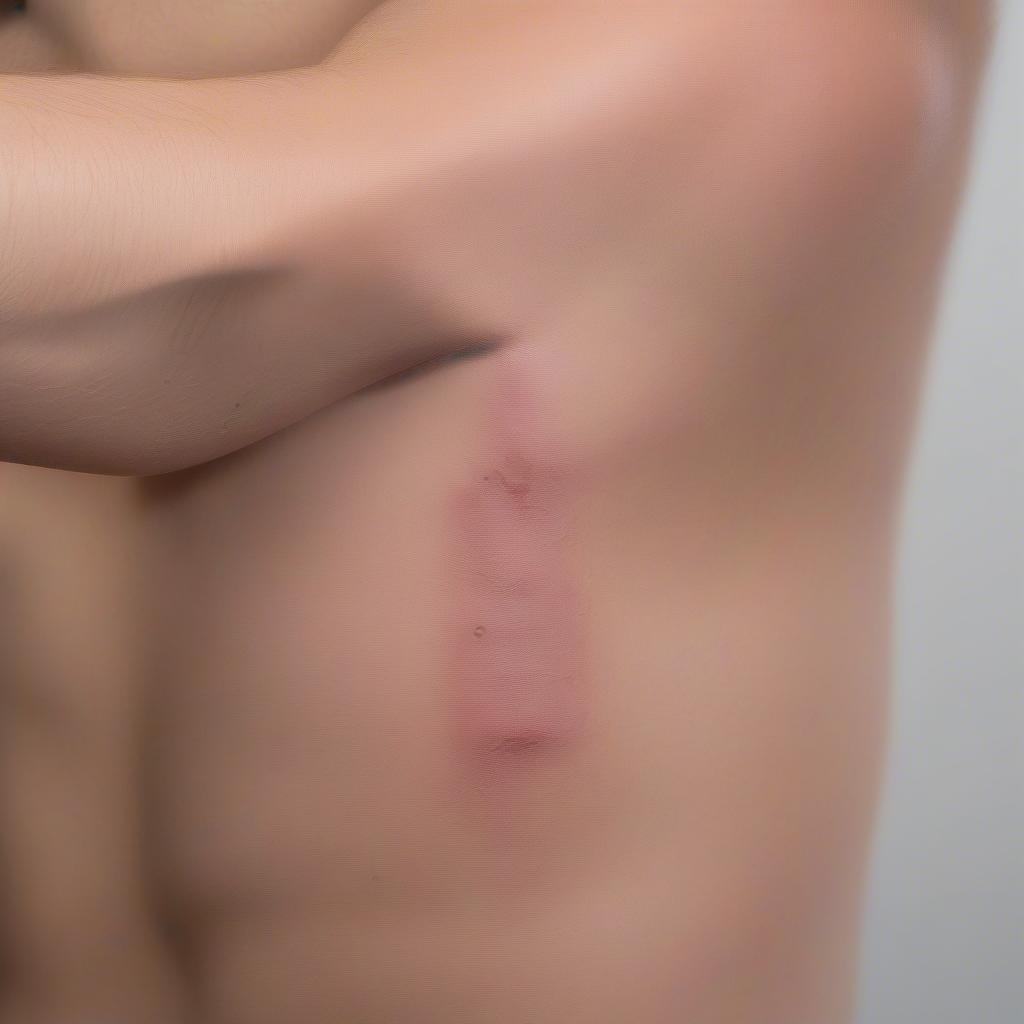
How Long After Surgery Can You Get a Tattoo?
- AmazoniaSilva
- Tháng 12 10, 2024
- Zodiac signs
- 0 Comments
Getting a tattoo is a personal and exciting experience. But if you’ve recently undergone surgery, it’s crucial to prioritize your health and healing before adding ink to your body. So, How Long After Surgery Can You Get A Tattoo? The answer isn’t one-size-fits-all and depends on several factors.
Factors Influencing Tattoo Timing After Surgery
Several key factors determine when it’s safe to get a tattoo after surgery:
- Type of surgery: Minor procedures like mole removal typically require less healing time than major surgeries like abdominal surgery or joint replacements.
- Size and location of the incision: Larger incisions and those in areas with high movement require longer healing periods.
- Overall health: Conditions like diabetes or autoimmune diseases can slow down healing and impact the timing.
- Medication: Certain medications, such as steroids or blood thinners, can affect wound healing and increase the risk of complications.
General Healing Timelines and Tattooing
While individual cases vary, here are some general guidelines:
- Minor surgeries: For smaller procedures with minimal incisions, you might be able to get a tattoo after 4-6 weeks, provided the wound is fully closed and healed.
- Major surgeries: For more extensive surgeries, waiting at least 3-6 months is usually recommended. Complex surgeries might require even longer healing times. It’s best to consult your surgeon before making any decisions.
- Tattoos near the incision site: Avoid tattooing directly over or near the surgical site until it’s fully healed, which could take several months or even a year. This reduces the risk of infection and allows the scar tissue to mature.
 Tattoo After Surgery: Understanding Healing Time
Tattoo After Surgery: Understanding Healing Time
Why Waiting is Important
Getting a tattoo too soon after surgery can lead to several complications:
- Infection: Fresh wounds are more susceptible to infections, and the tattooing process can introduce bacteria into the area.
- Delayed healing: The trauma of tattooing can interfere with the body’s natural healing process and prolong recovery.
- Scarring: Tattooing over a healing wound can disrupt scar tissue formation and potentially lead to unsightly scars.
- Keloids: Some individuals are prone to keloid formation, and tattooing over a surgical scar can increase this risk.
Consulting Your Surgeon and Tattoo Artist
It’s vital to consult both your surgeon and your tattoo artist before getting a tattoo after surgery. Your surgeon can assess your healing progress and advise on a safe timeframe. Your tattoo artist can evaluate the condition of your skin and ensure the procedure is performed safely. Open communication between all parties is key to a successful and safe tattoo experience.
 Consulting Your Doctor About Tattoos After Surgery
Consulting Your Doctor About Tattoos After Surgery
Tips for a Safe Tattoo Experience After Surgery
- Follow your surgeon’s post-operative instructions carefully.
- Keep the incision site clean and dry.
- Avoid picking at scabs or disturbing the healing wound.
- Eat a healthy diet and stay hydrated to promote healing.
- Communicate openly with your tattoo artist about your surgery and any concerns.
When in Doubt, Wait
If you’re unsure whether it’s safe to get a tattoo after surgery, err on the side of caution and wait. Your health is paramount, and it’s always better to be safe than sorry.
 Healed Surgical Scar Ready for a Tattoo
Healed Surgical Scar Ready for a Tattoo
Conclusion
Getting a tattoo after surgery requires careful consideration and patience. By understanding the factors involved and consulting with your surgeon and tattoo artist, you can ensure a safe and successful tattoo experience. Waiting for complete healing is essential to minimize risks and achieve the desired outcome. Remember, a little patience can go a long way in ensuring a healthy and beautiful tattoo.
FAQs
- Can I get a tattoo over my surgical scar? It’s generally best to avoid tattooing directly over a surgical scar until it’s fully matured, which can take up to a year or more.
- What are the signs of infection after getting a tattoo? Signs of infection include increased redness, swelling, pain, pus, and fever.
- Can I take pain medication before getting a tattoo after surgery? Consult your surgeon before taking any medication, especially blood thinners, as they can affect the tattooing process.
- How can I minimize scarring after surgery? Follow your surgeon’s post-operative care instructions carefully and avoid picking at scabs or disturbing the wound.
- What should I do if I experience complications after getting a tattoo? Contact your doctor or tattoo artist immediately.
- How do I find a reputable tattoo artist? Look for artists who are licensed, experienced, and follow proper hygiene protocols.
- Can I get a tattoo if I’m on antibiotics? It’s generally recommended to wait until you’ve finished your course of antibiotics before getting a tattoo.
Need more help? Contact us at [email protected] or visit us at Fifth Avenue, 34th Floor, New York, NY 10118, USA. We have a 24/7 customer service team.


